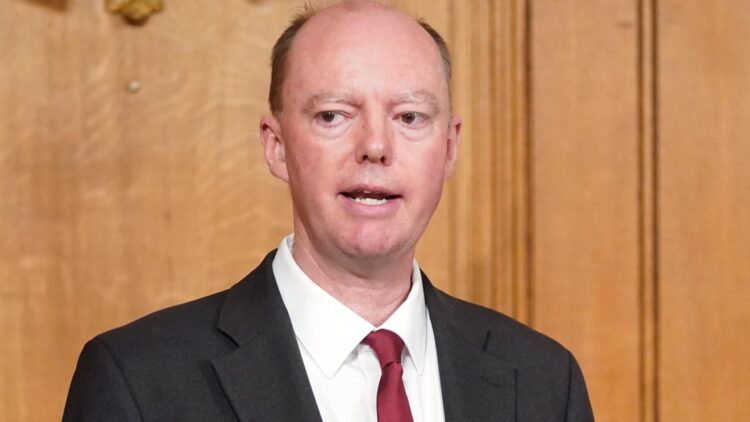By Ben Kerrigan-
Professor Sir Chris Whitty, Chief Medical Officer for England told the Covid Inquiry that he and Sir Chris had disagreed over the speed with which restrictions on liberty should be introduced.
When pressed over the issue on Tuesday Sir Chris said Sage had discussed the “downsides” of early lockdown.
Professor Whitty said that those in government did not understand the concept of exponential growth prior to the pandemic.
“I think that one of the things that, however, we really did not find easy to get across, and I found this surprisingly, surprising, given that so many people in both politics and in the official system are trained in economics, is the extraordinary power of exponential growth to get you from small numbers to large numbers very quickly, people just don’t get that intrinsically.”
Sir Chris Whitty said the pace of ministers’ decision making in early 2020 meant “we were slower than we should have been” when responding to the emerging crisis.
The chief medical officer told the Covid Inquiry that the delay was largely due to the “system” rather than individual politicians.
Sir Chris said the “technocratic” elements of the strategy he was in charge of “could just get on”.
He added: “Once you get into things that require political decisions and the big decisions, whether it be issues of borders, issues of lockdown, all these issues, these require things that have huge economic implications.
“Those fundamentally are ministerial decisions and I think that is where we were definitely slower than we should have been for a variety of reasons.”
Sir Chris Whitty confirmed he and other scientific advisers were confident closing borders would have “a very minimal effect” in preventing the spread of Covid.
He added that the effectivness of China closing its borders at the start of the pandemic was a “different matter”.
Once in pandemic territory, there is no hope stopping the spread, Sir Chris Whitty told the Covid Inquiry.
He said: “What we wanted people to realise is that once you’re in pandemic territory, the idea of stopping it is an illusion.”
The chief medical officer said that the only option available after the virus has reached a certain stage is to delay.
The UK’s early response to the pandemic have been described as a “data problem” by Sir Chris.
He told the Covid Inquiry: “The big problem we had in early March, in my view, principally arose from the fact we didn’t realise how far on the path we were and the force of transmission.
“Which was a data problem, and a testing problem, rather than because we lacked a document in February.”
He apologised to inquiry counsel Hugo Keith for “sounding slightly cautious about the importance of documents”.
He added: “But I’m just being practical about how emergencies tend to play out and the documents are often quite late in the process.”
Sir Chris Whitty said it was apparent early in the pandemic that the document “wasn’t going to give us any particular help”.
He said: “I looked at the pandemic flu plan at the point when we were beginning to worry about this… And it was pretty clear that it wasn’t going to give us any particular help, frankly.”
He added: “So my view was we didn’t have a plan that was going to be useful from a prevention or management point of view – it had a lot of large number of useful components within, it wasn’t nothing helpful there.
“But the idea there was a respiratory pandemic plan for the kind of pandemic this was going to be if it was going to be a problem, that we could just take off the shelf and follow the playbook was optimistic at best.”
Inquiry counsel Hugo Keith asked Professor Sir Chris Whitty if a lack of adequate recordings of meetings “contributed to that degree of chaos”.
Sir Chris replied: “A lot of the way by which senior ministers, including the prime minister, came to their position was done informally in conversation.
“And, for example, one of the times where we had the most conversation with the prime minister in a small group – where he tended to be at his most focused – was in the briefing just before we did press conferences.
“That was not not a formal meeting, that was really just working things out.”
Inquiry counsel Hugo Keith said there is “clear evidence” that the former prime minister “had a difficulty in reaching clear, consistent positions” with “ample evidence relating to oscillation or backing and veering”.
When asked if he witnessed this, chief medical officer for England Sir Chris Whitty said: “I think that the way that Mr Johnson took decisions was unique to him.”
When pushed on this comment, he added: “He (Mr Johnson) has quite a distinct style, but I think lots of other people have got quite distinct styles.”
Sir Chris said he felt his role was not to “make commentaries on individual politicians”.

